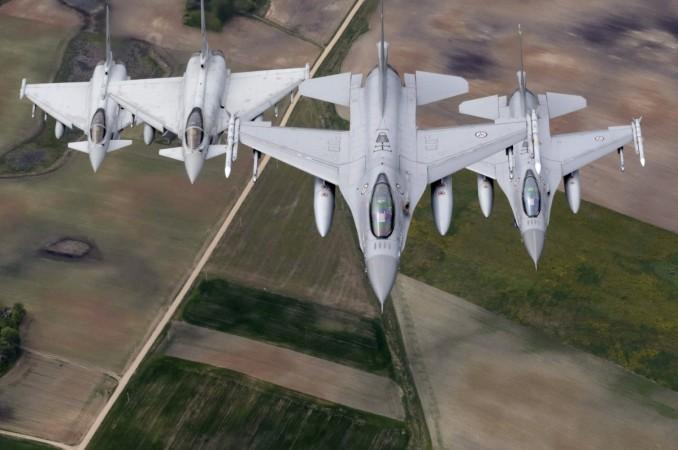
Russia and Turkey have signed a deal that will see them coordinate their strikes on ISIS militants, and "other terrorist organisations" in Syria.
The Russian Defense Ministry said the deal would "prevent accidents involving planes and drones" over Syria.
Will 2017 be the year the world finally gets rid of ISIS for good?
Over the last few weeks relations between Russia and Turkey, so chilly after the shooting down of a Russian Su-24M by Turkish air force F-16s on November 24, 2015, have become if not warm, then slightly balmy.
But what has fuelled this change? The obvious answer is a juggernaut of closed-door diplomacy between the two sides, but there's more to it than just that.
Western Europe was united in their condemnation of Turkish president Tayyip Erdogan's crackdown following the failed military coup against his regime. The quick shift from decrying the coup plotters to bemoaning Erdogan's "disproportionate reponse" raised the president's hackles.
Then of course was that ol' chestnut of Erdogan setting-back the process of integrating Turkey into the EU. That's a stick that has long been used to beat Turkey into toeing the European line, and in the past it has worked, to varying degrees. But no more.
In Russian President Vladimir Putin, it seems Erdogan has found an unlikely kindred spirit, which if not sharing a world vision, then at least harbouring the same tactical nuances: An inherent distrust of the West; a dislike to its often patronizing tone when dealing with non-EU nations; and of course its complete inability to act when called upon, especially in the Syrian theater of conflict.
Europe, and by extension the outgoing Obama administration, never bought into Turkey's vilification of the Kurdish separatist movement (in fact, the Kurds have been pivotal in America's own battles with ISIS).
The Kurds are widely regarded by the Turkish government to be little more than a group of thugs and terrorists looking to make territorial inroads under the guise of fighting ISIS.
Whether that's the true case or not is besides the point here. Putin is listening. Putin understands. Putin agrees. What did Kautilya write: "The enemy of my enemy..."
To call NATO, the European Union and the US, the enemy of Turkey and Russia may be overstating the truth, but that's the perception, and as we all know in the age of Donald Trump, perception counts for everything.
An alliance between Russia and Turkey, along with the situation in Eastern Ukraine, the Crimea, and the simmering rumours in the Baltics, mean that Europe could soon find itself hemmed in by countries and governments linked with an increasingly hawkish ideology, unafraid to use the stick while eating the carrot themselves.
For Europe that means only one thing, call in the Americans. With Donald Trump set to take office later in January, and already using the Twitter nuclear option, the cavalry might not arrive on time...if at all.
Radio Bremen reported that 87 US army tanks, howitzers and other assorted armored vehicles are heading towards Poland and from thence onto the Baltic states.
NATO and the US claim it is a continuation of operation Atlantic Resolve — the build-up of forces in Lithuania, Estonia, Latvia and Poland -- ostensibly to prevent further Russian aggression in Eastern Europe.
But there is a situation emerging on Europe's Southern front as well – the traditional soft underbelly – and while currently veiled by the dust of human carnage in Syria and further afield in Iraq, it isn't going anywhere soon.














